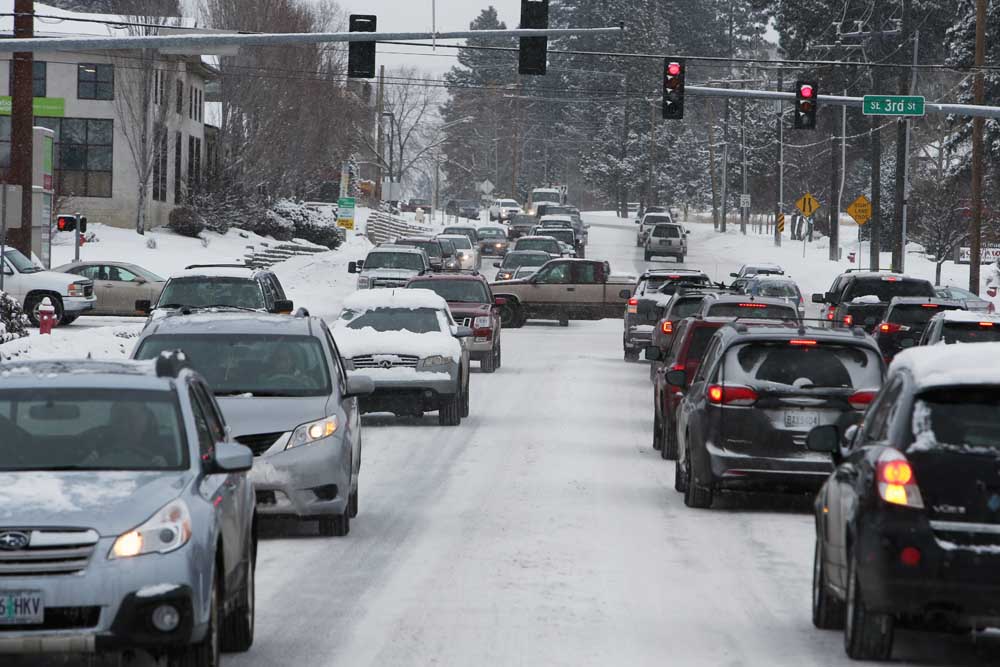Editorial: Why Bend voters should care about transportation committee’s anti-car bias
Published 12:00 am Thursday, April 12, 2018

- Bulletin photo
Bend City Councilor Barb Campbell offered an interesting piece of advice Tuesday to the roughly two dozen members of Bend’s Citywide Transportation Advisory Committee: Pay no attention to guidance offered by her and her six elected colleagues. The committee’s role is to advise the council, she insisted, not the other way around.
Voters should keep this advice in mind in November, when they fill three council seats, including the one currently occupied by Campbell.
City Council created the advisory committee, which met for the first time in February, to provide recommendations related to the update of the city’s Transportation System Plan. Separately, the council has adopted a handful of transportation goals. These goals should provide guideposts of sorts for the transportation committee’s deliberations, Councilor Bill Moseley emphasized Tuesday. Mayor Casey Roats, participating by phone, also emphasized the importance of respecting council guidelines.
Why would the council provide such guidance? Because the advisory committee’s work ultimately will come back to the council for approval. And councilors aren’t likely to support recommendations wildly at odds with their stated goals. The opinions of councilors matter because they, not committee members, have been elected to represent the wishes of constituents, many of whom are frustrated by the city’s increasingly congested roads.
The transportation committee has wasted no time demonstrating the value of the council’s goal-setting exercise. The council’s goals recognize the value of transit and alternative forms of transportation while emphasizing the need to improve road conditions and relieve congestion. By contrast, the advisory committee produced a draft set of goals in February that treat cars and trucks like a dirty transportation secret while prioritizing the pursuit of alternatives such as cycling, walking and public transit.
As we noted in an editorial earlier this week, the committee seems either unaware of or indifferent to the council’s wishes. It’s additionally worrisome that the committee has wandered alarmingly off track under the guidance of city staff, who presumably are expected to treat the council’s directives seriously. Who’s in charge here, anyway?
Yet there was Campbell, on Tuesday, insisting at the advisory committee’s second meeting that it shouldn’t be influenced by the city’s elected leaders. We wonder if she’d say the same thing, and with the same enthusiasm, if the committee’s initial goals dismissed the value of walking, cycling and transit and emphasized the importance of building new roads for cars. Somehow, we doubt it.
Campbell did make one good point Tuesday. Because city councilors’ terms are finite, the committee’s work will be judged by a council that may look slightly different than the one that set the goals the committee is supposed to respect. Three council seats are up for election in November. They are those held by Campbell, Nathan Boddie and Mayor Casey Roats.
If Bend voters would like their transportation plan to place a reality-based emphasis on congestion alleviation and road construction, they should insist that council candidates do as well.







